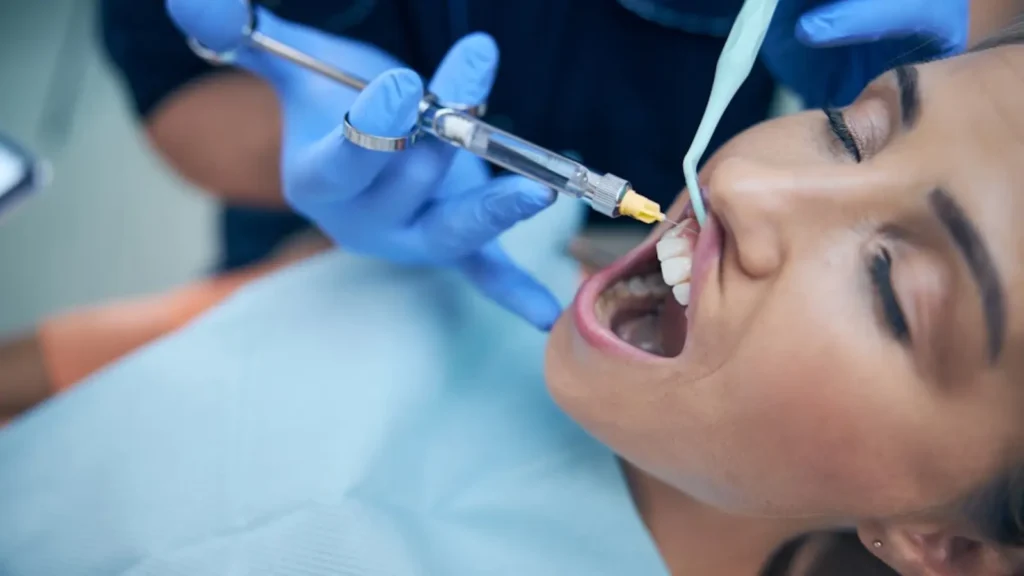Soft tissue transplantation is widespread in periodontal therapy and oral surgery used to restore gum tissue and protect teeth from damage. While these procedures generally have high success rates, there are cases where the graft may fail, leading to complications. Understanding the hidden causes of soft tissue graft failure can help clinicians and patients take preventive measures and improve outcomes.
In today’s blog, we will know what these hidden causes are and how both professionals & patients can work together to ensure the best possible outcomes for soft tissue grafting procedures.
Factors Hindering Healing Soft Tissue Graft
1. Inadequate Blood Supply
One of the primary causes of tissue graft failure is insufficient blood supply to the grafted area. Adequate blood flow is essential for providing oxygen and nutrients, both of which are essential for the healing processoxygen and nutrients, both of which are essential for the healing process. If the graft does not receive enough blood, it can lead to necrosis and failure. Factors that contribute to inadequate blood supply include:
- Tension on the graft: Excessive tension can impair blood flow and compromise graft survival.
- Poor recipient site preparation: A well-prepared site ensures better vascularization.
- Smoking: Nicotine constricts blood vessels, reducing blood flow.
2. Infection
Infection is another significant risk factor for tissue graft failure. Bacteria can invade the surgical site, leading to inflammation and disrupting the healing process. To minimize the risk of infection:
- Maintain good oral hygiene: Proper brushing and flossing can reduce bacterial load.
- Use of antiseptic mouthwash: This can help lower the risk of postoperative infections.
- Antibiotic prophylaxis: In some cases, antibiotics may be prescribed to prevent infection.
3. Mechanical Trauma
Mechanical trauma to the graft site can occur post-surgery, compromising graft stability and integration. This trauma can result from:
- Brushing too vigorously: Patients should be advised to use a soft-bristle toothbrush and gentle technique.
- Accidental contact: Avoiding hard foods and being cautious can prevent accidental trauma.
- Improper prosthetic use: Ill-fitting dentures or dental appliances can exert pressure on the graft.
4. Poor Surgical Technique of Soft Tissue Graft
The skill and experience of the surgeon play a critical role in the success of soft tissue grafts. A poorly executed procedure can lead to several complications, including:
- Inadequate graft fixation: Proper suturing is essential to prevent movement and ensure stability.
- Improper graft size and thickness: The graft must be of suitable dimensions to integrate well with the recipient site.
- Lack of attention to detail: Precision in every step of the procedure is crucial for success.
5. Patient Non-Compliance
Patient adherence to postoperative instructions is vital for graft success. Non-compliance can lead to complications such as:
- Ignoring dietary restrictions: Consuming hard or sticky foods can damage the graft.
- Not following oral care guidelines: Failure to maintain oral hygiene can lead to infection.
- Skipping follow-up appointments: Regular check-ups are necessary to monitor healing progress.
6. Systemic Health Issues
Underlying health conditions can impact the healing process and increase the risk of this treatment failure. Conditions that may affect graft success include:
- Diabetes: Poor blood sugar control can impair wound healing.
- Autoimmune disorders: These can lead to exaggerated immune responses, affecting graft integration.
- Osteoporosis: Reduced bone density can compromise the stability of the graft.
7. Medication Interference
Certain medications can interfere with the healing process and increase the likelihood of graft failure. These include:
- Immunosuppressants: Drugs that suppress the immune system can hinder healing.
- Anticoagulants: These can increase bleeding risk and affect graft stability.
- Bisphosphonates: Used to treat osteoporosis, they can impact bone healing.
8. Suboptimal Host Tissue Quality
The quality of the host tissue plays a crucial role in the success of soft tissue grafts. Factors that affect tissue quality include:
- Gingival recession: Severe recession can complicate graft integration.
- Periodontal disease: Active disease can compromise the healing process.
- Thin biotype: Thinner gum tissue may be less robust and more prone to failure.
Soft tissue graft failure can occur due to various hidden causes, ranging from inadequate blood supply and infection to patient non-compliance and systemic health issues. Understanding these factors can help both clinicians and patients take proactive steps to enhance the success rates of soft tissue grafts.
By addressing these hidden causes, we can work towards minimizing tissue graft failure and achieving better long-term outcomes for patients.
In the end, careful planning, attention to detail, and patient education are essential components in preventing tissue graft failure. By identifying and mitigating these hidden causes, we can improve the overall success of soft tissue graft procedures and ensure optimal results for our patients.
Frequently Asked Questions On Soft Tissue Graft Failure!
Can allergies contribute to soft tissue graft failure?
Yes, allergies can potentially contribute to soft tissue graft failure. Allergic reactions can lead to inflammation and swelling at the graft site, which may interfere with the healing process. It’s essential for patients to inform their healthcare provider about any known allergies to medications, materials, or foods before undergoing a grafting procedure.
Is there a genetic predisposition to soft tissue graft failure?
While research is still ongoing, there is some evidence to suggest that genetic factors may influence the success of soft tissue grafts. Certain genetic markers can affect how a person heals or responds to grafting procedures. For example, genes that regulate inflammation and tissue repair could potentially play a role in graft success or failure. However, more research is needed to understand the specific genetic factors involved.
Can emotional stress impact the success of a soft tissue graft?
Emotional stress can indeed impact the success of a soft tissue graft. Stress has been shown to affect the body’s immune response and healing processes, potentially leading to complications such as delayed healing or increased susceptibility to infection. Managing stress through relaxation techniques, exercise, or counseling can be beneficial in promoting optimal healing after a grafting procedure.

